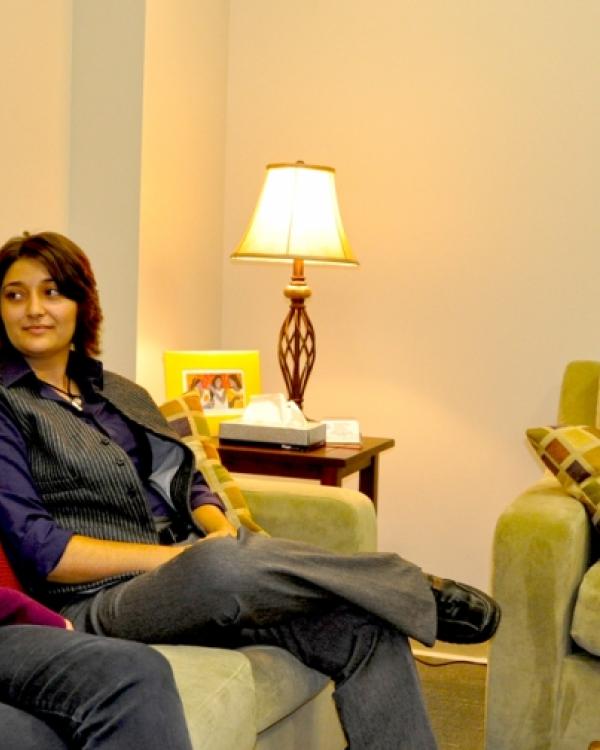
A session at the Hosford Clinic
The Hosford Counseling & Psychological Services Clinic at UC Santa Barbara provides couple, family, and group psychological treatment and testing/assessment services to people living within the central coast community. For a limited time the clinic is offering free intakes for new clients. While a needs-based sliding scale is available to clients, a typical intake can cost $200 for a two-three hour session.
At an intake a clinician will ask the client to talk about his or her life and the problems or difficulties that one might be facing. Clients will be asked to complete some paper-and-pencil surveys about different aspects of one’s life or situation. Once the clinician has all of this information, the Clinic will determine whether it can help you. Because this is a training clinic, the Hosford is not equipped to help everyone. It is possible that another agency or clinician might be a better fit for you. If this is the case, the Hosford will help refer a client to an agency that meets his or her needs. If the Hosford determines that it is able to meet a client’s needs and it has a clinician who is qualified to work with a client’s issues, that clinician will arrange an initial therapy session.
Common concerns that individuals seeking psychotherapy at the Hosford Clinic are looking for help with include: anxiety, communication, depression, grief/loss, low self-esteem, life transitions, school adjustment, relationship issues, difficulties within families, self-concept, stress, trauma, personal and career decisions, and parenting difficulties.
The Hosford Counseling & Psychological Services Clinic is a university-based community clinic that is designed to provide developmentally appropriate and culturally sensitive, low-cost individual, couple, family, and group psychological treatment and testing/assessment services to people living within the central coast community. The Hosford Clinic serves as a training site for students in the Department of Counseling, Clinical, and School Psychology (CCSP) of UC Santa Barbara and as a clinical-research facility for the faculty and students of the CCSP Department. It also strives to provide educational, consultation, and training services to professional and paraprofessional clinicians and educators in the tri-counties.